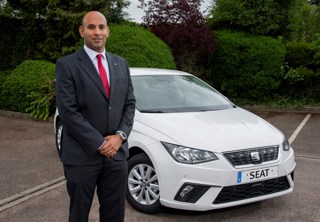The Treasury and Work and Pensions Committees have branded senior pay at Motability Operations "unacceptable", and say its large reserves are out of proportion to the risks it faces.
In a joint report published today, the Committees say that Motability needs a new roadmap for how it manages the scheme’s finances.
The report says it is difficult to square the high levels of executive pay and significant financial reserves at Motability Operations with the scheme’s charitable objectives and the wider context of pressures on welfare expenditure.
It says that the National Audit Office should conduct a full value for money review into the scheme.
Commenting on the Report, Frank Field MP, chairman of the Work and Pensions Committee, said: "It is impossible to calculate the human happiness that has resulted from the freedom and independence that Motability scheme—the first and only scheme of its kind—offers disabled people. But the organisation operates as a monopoly that faces no competition in accessing disabled people’s often hard-won PIP benefits.
“The levels of pay pocketed by its executives and the cash reserves it is hoarding are totally out of whack with reality of its position in the market. That one member of staff is paid over ten times what the Prime Minister earns, is one example of where Motability needs to get a grip of itself and realise the privileged position in which it trades.
“Its executives must co-operate with a full NAO investigation into the value it is offering the taxpayers who fund a significant chunk of its operations."
Motability Operations is the only private organisation entitled to receive welfare payments for the leasing of vehicles, it says.
Motability Operations also benefits from two types of tax relief: on Value Added Tax (VAT), providing a 20% discount on the value of the car, and Insurance Premium Tax (IPT), providing a 12% discount on the insurance element of leasing the vehicle.
In practice, the report says Motability Operations has a monopoly on these reliefs, which cost the Government around £700 million per year. The Government, it says, must explain why providing such state assistance in the absence of competition is an appropriate use of public money.
Meanwhile, Motability Operations’ reserves increased by 328% from £568m in 2008 to £2.4 billion in 2017.
Motability Operations has justified such large reserves on the grounds of its inability to diversify out of its one product—leasing cars—and one customer base—those in receipt of mobility welfare payments.
The total remuneration package of CEO Mike Betts increased by 78% from £954,000 in 2008 to £1.7m in 2017. Its pay is based on a comparison with FTSE 250 companies, but Mobility Operations does not face the same fundamental risks and stresses that FTSE 250 companies face, says the report.
Given its existence as a taxpayer-supported monopoly, the zero competition it faces for customers, and the context of restrained welfare spending in which it operates, the level of Motability Operations’ executives’ pay is totally unacceptable, the Committees conclude.
Nicky Morgan MP, chairman of the Treasury Committee, said: "The Motability Scheme is a valuable service that is helping over 600,000 disabled people live more independently. But such high levels of executive pay and significant financial reserves are difficult to square with the honourable objectives of the scheme.
“It seems that Motability may have lost its way. DWP should ask the NAO to carry out a full inquiry into the value for money of the Motability Scheme. This could help ensure that those who rely on the scheme are able to access it on the best value terms."
Motability Operations has welcomed the report and says that on Betts' pay it was "reviewed against the market to ensure that it is both competitive over the long term and to make sure that any rewards are related to performance especially in relation to the quality of service provided".



















Sammy - 22/05/2018 09:49
I used to work for this company. IT systems use decades old technologies. In meetings CEO talks about how we have secured finances and how to avoid negative publicity by not doing direct advertising. Growth is 1% and it has market monopoly because of 0 VAT for charity and bulk buying. There is absolutely no risk. Four banks own 25% equity each but they can’t take out profit, so really not interested in running this company and there is incentive for getting better. Newspapers are talking about Mike bett’s salary when he was getting paid 800k just 5 years back and now it’s doubled. How thick skin are these people. Normal employees get 1.5 increment whethere high performer or not.